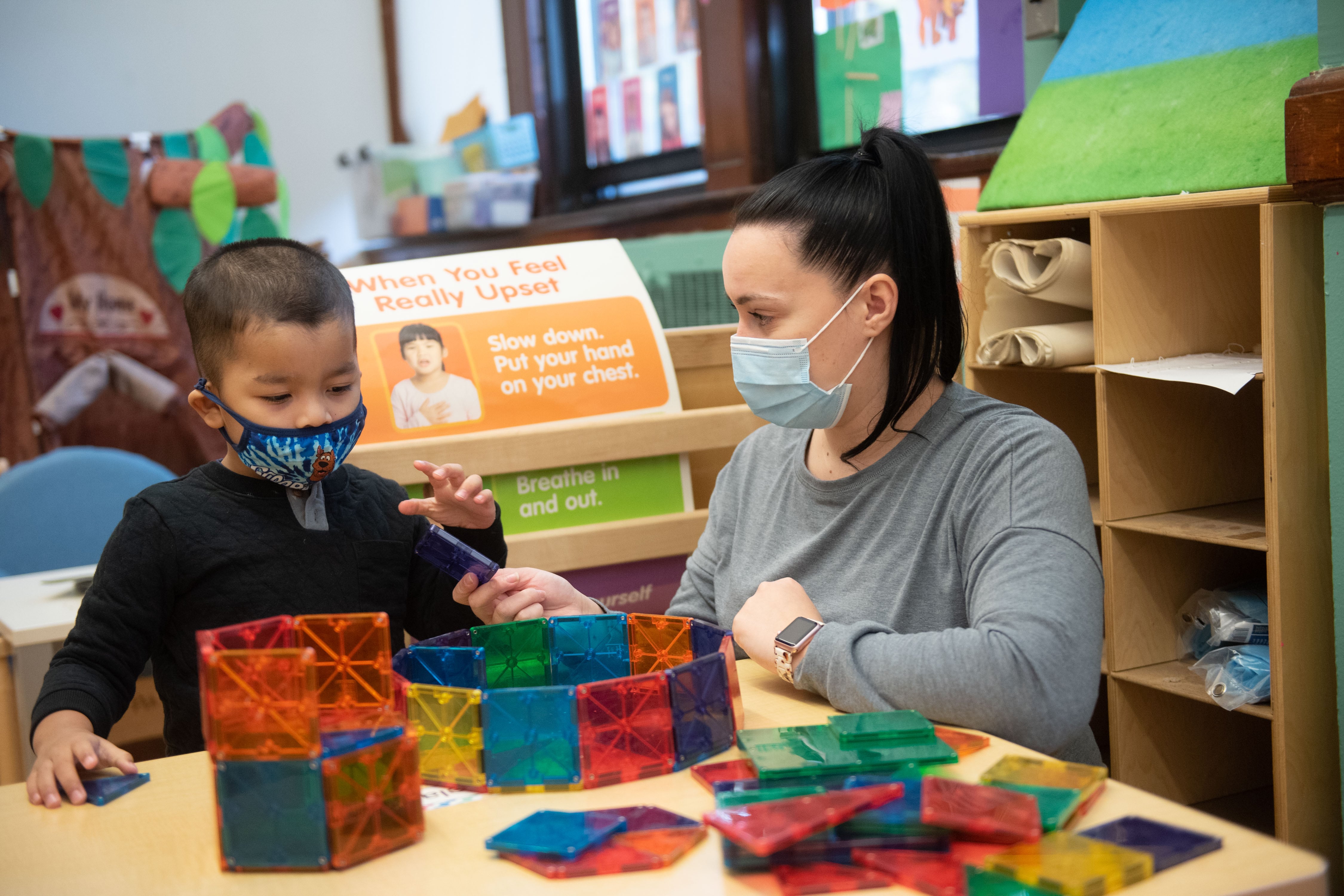New York’s child care workers could soon receive up to $3,000 in bonuses under a new program Gov. Kathy Hochul unveiled on Wednesday.
The state is earmarking $500 million in underutilized federal funds for child care workforce retention grants to help organizations keep staff and attract new workers. The goal is to support roughly 150,000 child care workers with bonuses ranging from $2,300 to $3,000, in addition to bolstering recruitment efforts, according to state officials.
Applications will open on July 13. (State officials are creating an online portal where applications can be submitted.)
Hochul hopes the bonuses can help address the “child care deserts” that became even more prevalent during the pandemic, with the closure of 2,000 child care programs and 20,000 slots statewide.
“This is happening in communities all over our state,” she said during a press conference at a Brooklyn child care center.
The lack of options for infants, toddlers, and preschoolers has affected parents nationwide, as tens of thousands of child care workers left for careers with better pay and in some cases lower stress. In New York City, advocates have pushed for higher wages for child care workers, as well as improving outreach to families so they know where to find spots for their kids.
Some in the child care sector worry that the bonuses won’t provide a sustainable solution for an issue that runs much deeper: The low wages in the child care sector make it hard for many staffers — largely women of color — to stay afloat.
Nora Moran, director of policy and advocacy at United Neighborhood Houses, said she was pleased to see Hochul and other state officials providing child care workers with some financial support.
“We hope these grants are easy to access, as that will help ensure that funds actually get to providers in a timely manner,” she said in an email. “However, the State does need a plan to address overall wages and not simply offer bonus payments. Child care workers are often paid low wages, and one time bonuses will not help ensure that these workers are paid a sustainable, living wage.”
Gregory Brender, chief policy and innovation officer at the Day Care Council of New York, also praised the grants, but urged the city and state to enact further measures to close gaps between community-based early childhood education staff and their public school counterparts.
Veteran certified prekindergarten teachers at community-based organizations can earn just 53% of their counterpart’s salary at a public school’s pre-K program, he said. An assistant teacher could sacrifice more than $235,000 over a 25-year career at a community-based organization.
This year, New York City’s free prekindergarten program run by community organizations has been rife with problems related to delayed payments, and is also reeling from declining enrollment. The city’s 3-K program has about 16,000 unfilled seats, according to Adams administration officials. Many City Council members blame the lack of outreach for that. This month, City Council Speaker Adrienne Adams and other elected officials called for changes to 3-K and pre-K programs, criticizing Mayor Eric Adams’ handling of the city’s early childhood education system.
The governor announced the retention program and other child care investments during a visit to New York City-based child care provider Vivvi, which operates seven campuses for children 5 and younger.
“Oftentimes, people think about child care deserts as being somewhere else,” said Charles Bonello, CEO of Vivvi. “But the truth is that New York has one of the most significant child care supply-and-demand imbalances in the country.”
He noted that families can spend more on child care than they do on housing, health care, food, or college. Monthly tuition at Vivvi ranges from $1,800 for two days a week to $3,600 for five days, according to a sponsored post run on the Brooklyn Bridge Parents website.
“Too often, working parents — especially mothers — are forced to make heartbreaking decisions to downshift or leave their careers altogether,” Bonello said.
Julian Shen-Berro is a reporter covering New York City. Contact him at jshen-berro@chalkbeat.org.







